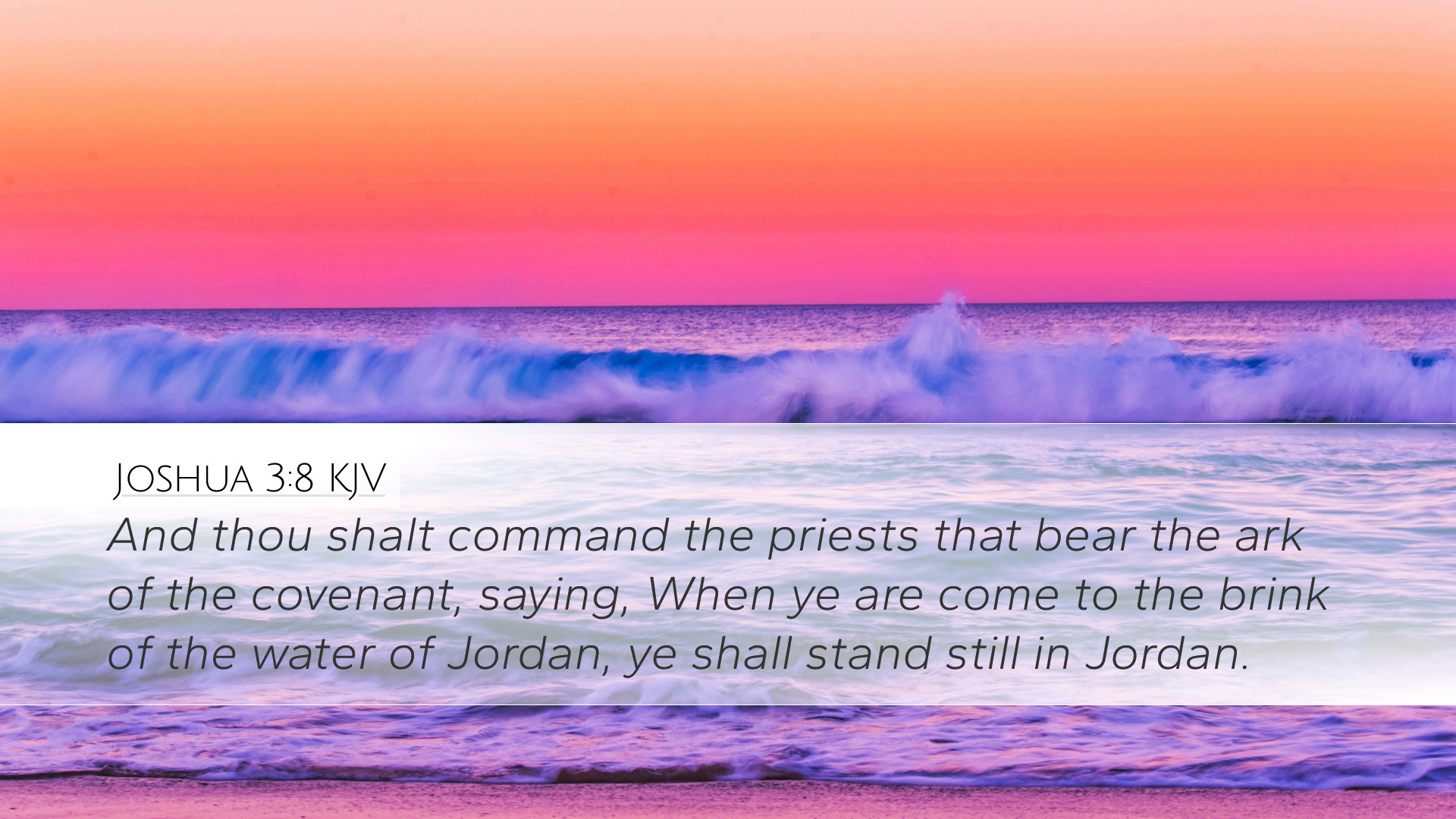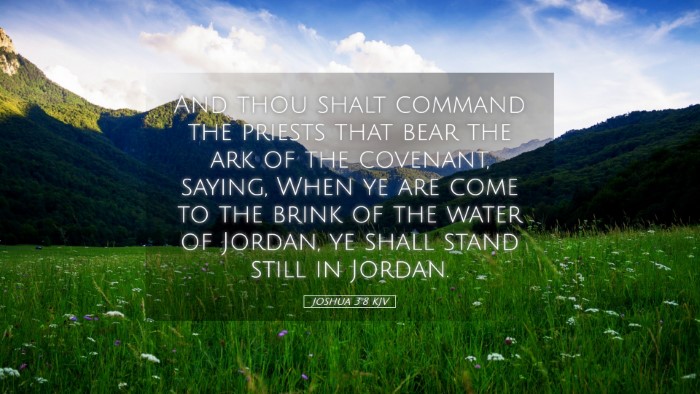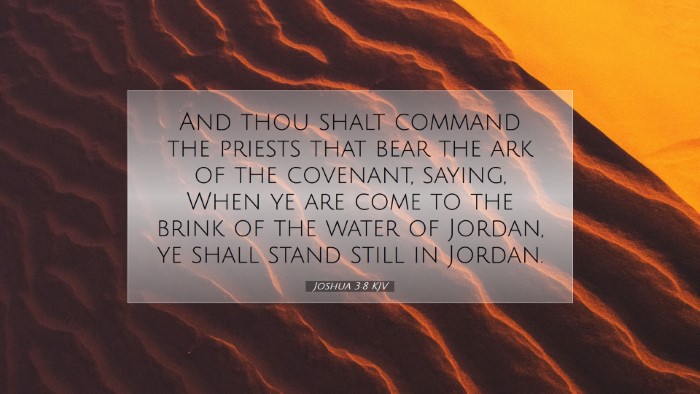Old Testament
Genesis Exodus Leviticus Numbers Deuteronomy Joshua Judges Ruth 1 Samuel 2 Samuel 1 Kings 2 Kings 1 Chronicles 2 Chronicles Ezra Nehemiah Esther Job Psalms Proverbs Ecclesiastes Song of Solomon Isaiah Jeremiah Lamentations Ezekiel Daniel Hosea Joel Amos Obadiah Jonah Micah Nahum Habakkuk Zephaniah Haggai Zechariah MalachiJoshua 3:8
Joshua 3:8 KJV
And thou shalt command the priests that bear the ark of the covenant, saying, When ye are come to the brink of the water of Jordan, ye shall stand still in Jordan.
Joshua 3:8 Bible Commentary
Commentary on Joshua 3:8
In the book of Joshua, especially in chapter 3 verse 8, we encounter a significant moment in the history of Israel's journey into the Promised Land. This verse lays the foundation for understanding God’s providential guidance and His miraculous power.
Text of Joshua 3:8
"And thou shalt command the priests that bear the ark of the covenant, saying, When ye are come to the brink of the water of Jordan, ye shall stand still in Jordan."
Overview of the Context
Prior to the crossing of the Jordan, the Israelites had wandered in the wilderness for 40 years. As they approached the land promised to their ancestors, God prepared them for a crucial transition. The verse presents a divine command to Joshua, who was to relay it to the priests bearing the Ark of the Covenant. This Ark symbolized God's presence among His people and was central to their identity as a holy nation.
Insights from Commentators
Matthew Henry's Commentary
Matthew Henry emphasizes the significance of obedience and faith in this command. He points out that the priests bearing the Ark were to step into the water at flood stage, trusting completely in God's promise of deliverance. This act of standing still, despite facing a formidable obstacle, illustrates the principle that human effort must be aligned with divine instruction.
Albert Barnes' Commentary
Albert Barnes highlights the symbolic act of the priests standing in the Jordan. He notes that the priests were to act as mediators between God and the people. Their standing still in the river represented a pivotal moment of faith—a physical demonstration that God would hold back the waters. Barnes stresses that this moment serves as a model for God’s people, who are often called to trust God’s timing and directive, even amidst daunting circumstances.
Adam Clarke's Commentary
Adam Clarke delves into the practical implications of the instruction given to the priests. He remarks on the gravity of their role and the faith required to carry out such a command. Clarke articulates that the command signifies God’s desire for His people to take a step forward in faith. The standing still is not merely physical; it reflects an inner stillness before God, recognizing His sovereignty over life’s transitions.
Theological Themes
- Faith and Obedience: This passage exemplifies the profound relationship between faith in God's promises and the obedience His people must exercise. The Israelites had to trust that God would perform his promise to part the waters.
- God's Presence: The Ark of the Covenant represents God's continual presence with His people. The act of bearing the Ark highlights the importance of being guided by God in our endeavors.
- Divine Intervention: The crossing of the Jordan serves as a reminder of God’s faithfulness and ability to intervene supernaturally in the lives of His people.
Practical Application
This verse challenges contemporary believers to consider their own "Jordans" in life—situations that require immense faith to traverse. It calls to mind the need for leaders, much like Joshua and the priests, to follow God's command diligently, assuring their congregations of His unwavering faithfulness.
Furthermore, it encourages personal reflection on how we approach our challenges. Are we ready to take a step of faith, even when circumstances seem impossible? The narrative invites us to examine how our understanding of God’s presence can influence our actions and our trust in divine direction.
Conclusion
Joshua 3:8 serves as a powerful reminder of both the historical and spiritual dimensions of God’s engagement with His people. As pastors, students, theologians, and scholars study this verse, they are invited to interpret and apply its deeper meanings within their own contexts. The call to stand still in the face of challenges resonates throughout time, encouraging believers to remain steadfast in their faith as they journey forward in obedience to God's calls and promises.


